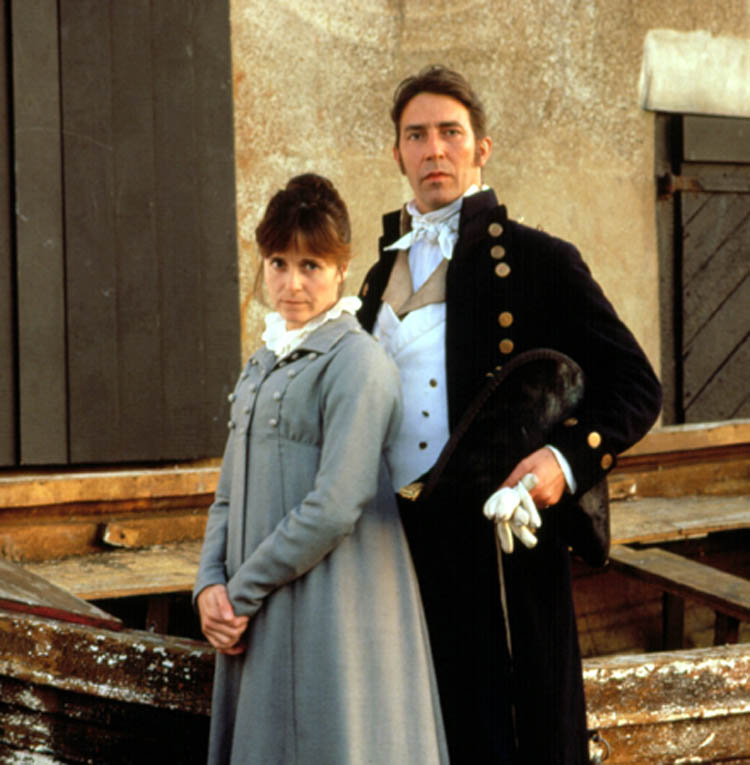
Monday
This Amy Collier New Yorker piece, entitled “How Dating During a Pandemic Is Like Being in a Jane Austen Novel,” is perfection. Although humorous, it may also inadvertently explain why we are drawn to Austen romances. What the relationships face in obstacles, they gain in intensity.
Collier explains her comparison through a series of bullet points:
- It’s a long, drawn-out affair, composed of public meetings.
- The main characters lead quiet domestic lives.
- The whole town feels invested in your behaviors.
- You regularly inquire about the health of each other’s family members.
- Strict manners and customs of the day, built around a moral duty to society, dictate your interactions and lead to amusing mishaps.
- Clever planning is involved.
- Includes many brisk walks.
- Gossip helps edify listeners by determining what is and isn’t acceptable, and who has violated social conventions and decorum.
- Romantic encounters are very weather-dependent.
- There’s gonna be tea at some point.
- You inform your friends—who lead tranquil lives full of cooking and evenings at home—of recent romantic developments through vividly written correspondence.
- Much of the romantic relationship is epistolary, too.
- Eye contact and subtle gestures play an important role.
- You and your prospective future husband barely touch.
I have no way of knowing whether the Covid pandemic has caused a return to old-fashioned courtship, but it certainly prompts us to reflect upon the effects of delayed gratification. In a world where everything is built for speed and convenience, the slowness of Jane Austen’s relationships is part of their attraction.
In his essay-novel Slowness, Czech author Milan Kundera reflects on what we have lost:
Why has the pleasure of slowness disappeared? Ah, where have they gone, the amblers of yesteryear? Where have they gone, those loafing heroes of folk song, those vagabonds who roam from one mill to another and bed down under the stars? Have they vanished along with footpaths, with grasslands and clearings, with nature? There is a Czech proverb that describes their easy indolence by a metaphor: “They are gazing at God’s windows.” A person gazing at God’s windows is not bored; he is happy. In our world, indolence has turned into having nothing to do, which is a completely different thing: a person with nothing to do is frustrated, bored, is constantly searching for the activity he lacks.”
Kundera contends that our emphasis on speed changes the very nature of sexuality:
The religion of orgasm: utilitarianism projected into sex life; efficiency versus indolence; coition reduced to an obstacle to be got past as quickly as possible in order to reach an ecstatic explosion, the only true goal of love-making and of the universe.
The fact that Austen’s relationships are drawn out for months or even years (especially in Persuasion, her most romantic novel) only increases their intensity. John Fowles reflects upon “the interesting ratio…between the desire and the ability to fulfill it” in the French Lieutenant’s Woman, which is set in Victorian England:
[W]e may believe we come off much better than our great-grandparents. But the desire is conditioned by the frequency it is evoked: our world spends a vast amount of its time inviting us to copulate, while our reality is as busy in frustrating us. We are not so frustrated as the Victorians? Perhaps. But if you can only enjoy one apple a day, there’s a great deal to be said against living in an orchard of the wretched things; you might even find apples sweeter if you were allowed only one a week.
So it seems very far from sure that the Victorians did not experience a much keener, because less frequent, sexual pleasure than we do; and that they were not dimly aware of this, and so chose a convention of suppression, repression and silence to maintain the keenness of the pleasure.
Fowles asserts that the Victorians, perhaps because they did not have sex constantly thrown at them, were “far more preoccupied with it than we really are.” He adds that they “were certainly preoccupied by love, and devoted far more of their arts to it than we do ours.”
To be sure, we have the internet, not to mention far less reserve, which means that our Elizabeths do not have to rely for happiness on a chance encounter at Pemberley with their Darcys. Freudian sublimation, explained in Civilization and Its Discontents, can be overrated. But if we are going to be kept apart from our loves, it’s nice to know that there is an upside.